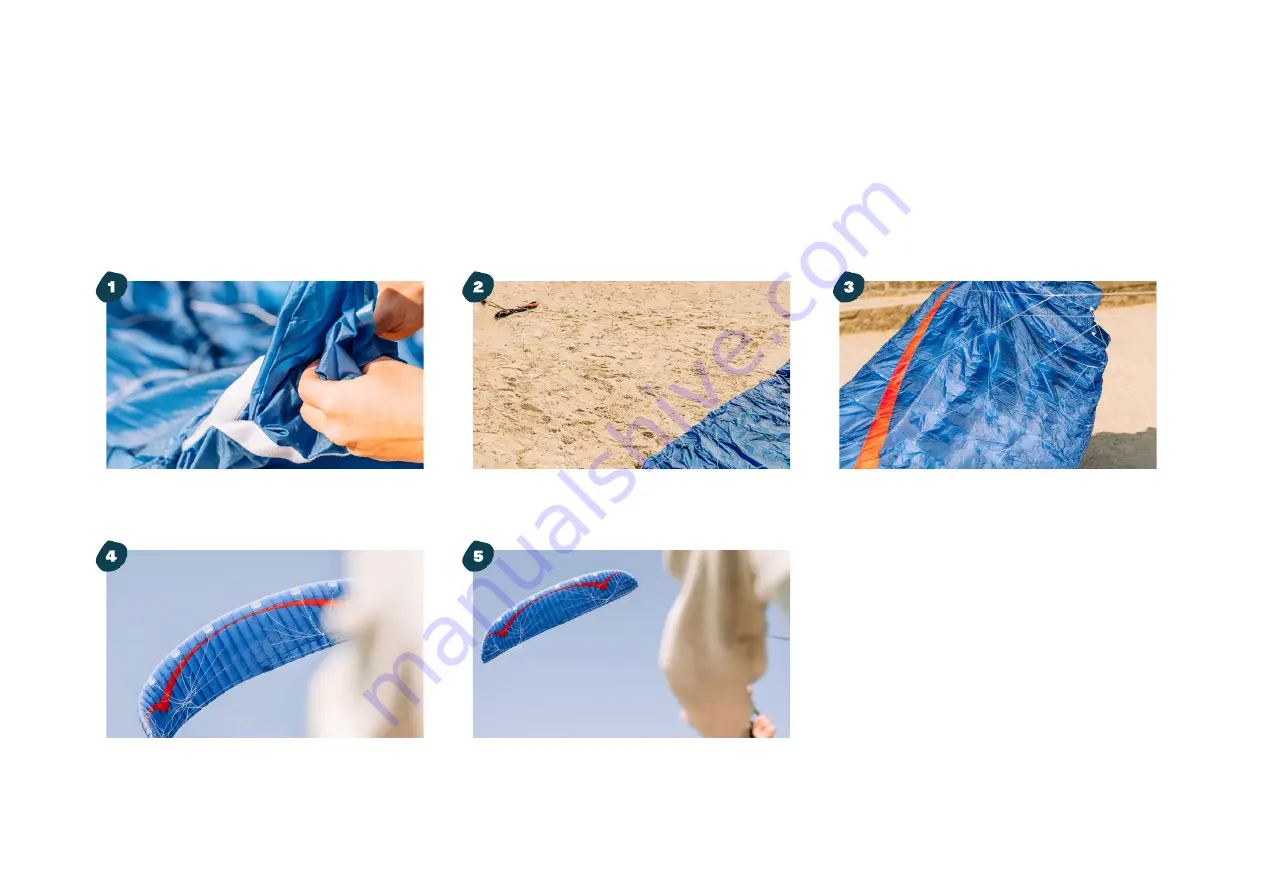
16.
Close the deflate valve.
LAUNCHING
The kite must be positioned at the edge of the
flying window, generating a small tension on the
lines.
Pre-inflate the kite up to half way in the sky, espe-
cially in strong wind. If needed, an assistant can
hold your back in strong wind.
Start pulling up the kite slowly and walking
downwind to the kite.
SELF-LAUNCH
Put the kite up to the zenith and check that every-
thing is correctly set up.
fly the BOOM V2









































